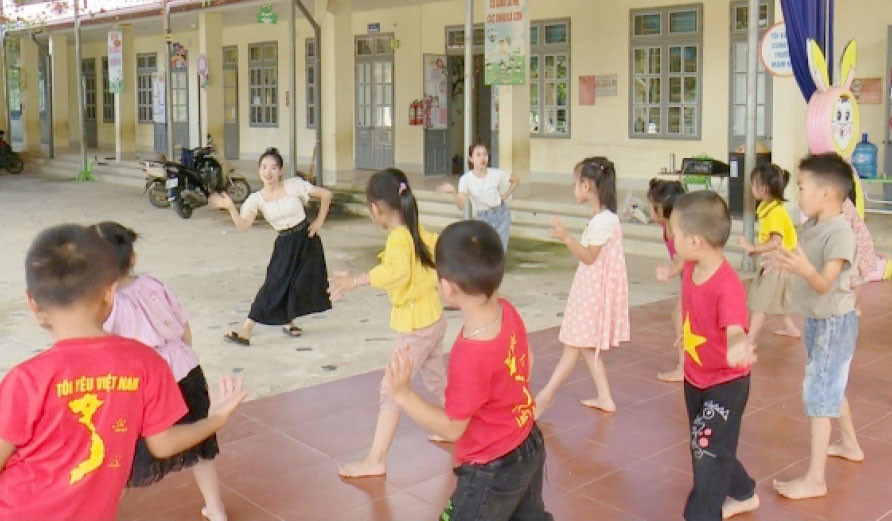Punitive forms of student discipline will not be effective, but instead will make children unaware of their wrongdoings and increasingly distant from their teachers and parents.

As a parent whose son used to smoke e-cigarettes at school, Ms. Nguyen Hai Ha in Dong Da District, Hanoi understands the concerns of parents and schools. According to her, it is necessary for schools to punish students who violate school rules, but handling the situation like the supervisor at a private school in Ho Chi Minh City with 8 students is unacceptable. This is an act of violating the students' bodies, affecting their self-esteem. There are many ways to check if students are carrying e-cigarettes or not, it is not necessary to force them to take off their clothes, Ms. Ha was upset.
Although the incident has passed, this teacher has realized his mistake, so he wrote a letter of apology to the school, the student's family and proactively asked to resign, but public opinion still asks the question "why are more and more teachers choosing to punish students in such "unusual" and confusing ways? How can school discipline be positive?
According to Ms. Vu Thu Ha - Director of the Vietnam Institute for Psychological Training and Intervention - VPIT, such forms of punishment are not educational, ineffective, but on the contrary, they hurt children and make them increasingly hostile to education, even to the teachers who are teaching them.
With the current education system, somewhere there may still be teachers who do not understand what "positive education" and "positive discipline" are. Usually, teachers today only focus on the goal of equipping students with knowledge, forcing them into the framework and discipline of the school and class. When students make mistakes, teachers will impose punishments such as forcing students to copy 10-15 pages. This punishment seems simple but becomes too much for students because nowadays, outside of class time, when students return home, they have to deal with countless types of exercises, so they often do not have time to rest. That shows that most teachers today do not fully understand the psychology of students' ages, and do not have ways to help them change their behavior.
In the past, when students made mistakes, teachers often tried to talk privately to help students realize their mistakes. Talking, exchanging, and sharing based on moral and human aspects will convince students and gradually change their negative behavior.
Students are at an age where their emotions are often unstable, easily influenced by bad friends but still want to express themselves. Therefore, teachers need to clearly define the principles of what students can and cannot do. If students violate, teachers must find a way to talk to them, helping them realize the consequences that will occur. In case students still do not change, teachers must be patient and persuasive. In addition, teachers can also apply some forms of punishment such as: forcing them to do extra homework or clean the school, classroom, if necessary, teachers can also ask parents to cooperate. Strong but educational messages will be more effective than us solving them in a harsh and rude way.
According to Ms. Vu Thu Ha, when entering the teaching profession, in addition to teaching students knowledge and helping them achieve their learning goals, it is important for each teacher to understand and sympathize with children. For example, when seeing their students confused in relationships, being bullied at school or not being able to learn a subject, they need to talk to them, sympathize, understand them, and find ways to help them escape from their difficulties. "The most important thing is that teachers must understand their students, every child is different, has good and bad sides. Teachers must be the ones to inspire and encourage children to develop their good sides. When children realize that they have value in life, they will become less negative" - Ms. Vu Thu Ha emphasized.
In addition, teachers also need to help students grow and develop themselves to overcome challenges in life, especially in the context of social networks developing like today. Students are still young and fragile, so they need the companionship of teachers. If teachers had compassion, perhaps many heartbreaking incidents would not have happened.
Children's behavior is often not in accordance with school regulations, so teachers need to remind and find a solution in a convincing and humane way. Negative forms of discipline or humiliating students will not have real and sustainable effects.
According to VOV